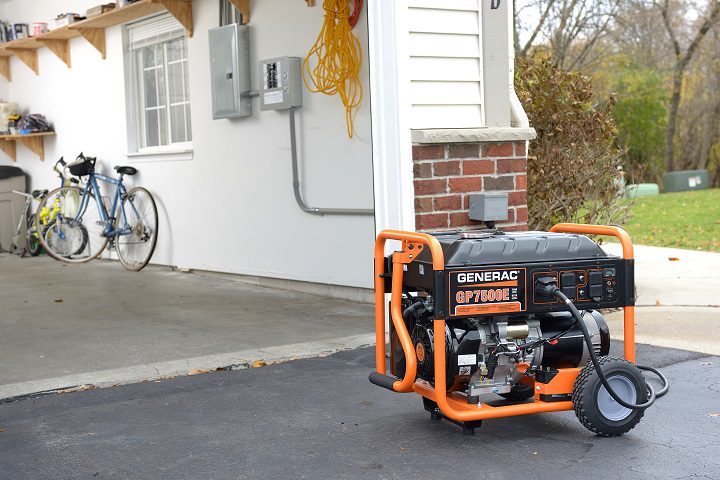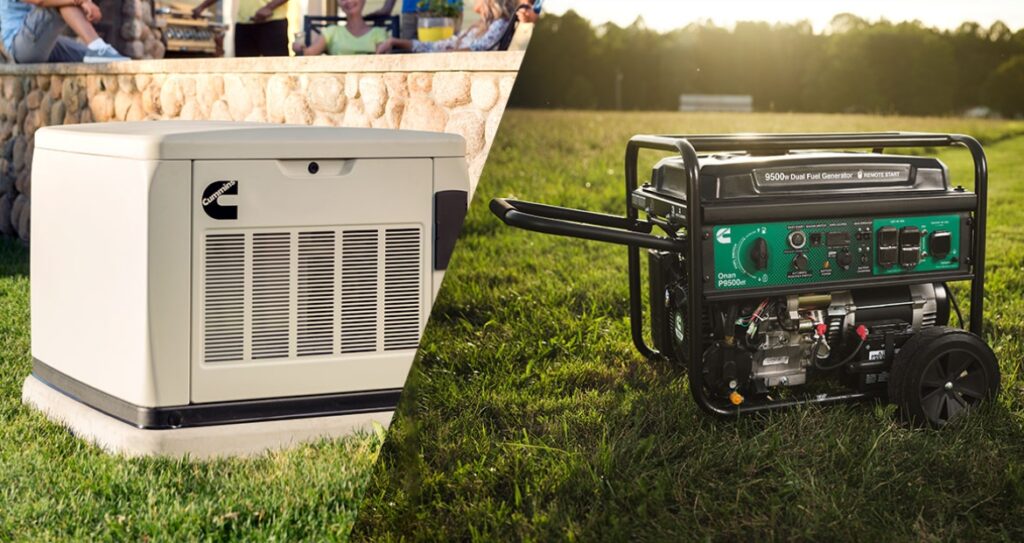
Where to Start When Looking in to Gas Generators
Are you in the market for a gas generator but wondering, “How big of a generator do I need?” Well, let’s break it down in a friendly, easy-to-digest way.
Step 1: Make a List Imagine your dream generator as a power buffet. Before you dive in, list all the appliances and gadgets you want to keep humming during an outage. Don’t forget to peek at their manuals for wattage details.
Step 2: The Motor Mystery For those motor-powered devices, you’ll need to flex your math skills. Use this formula: Running wattage (R) + Starting wattage (R x 3) = Total wattage needed. Simple, right?
Pro Tip: Light bulbs and coffee makers don’t need a power jumpstart, so just focus on their running wattage.
Step 3: Crunch the Numbers Once you have your power-hungry list and their wattage figures, add ’em up. The more gadgets on your list, the bigger the generator you’ll need.
Here’s a Quick Cheat Sheet:
- Fridge/Freezer: 600 – 800 watts
- Microwave: 1200 watts
- Electric Oven: 5000 watts
- TV: 100 – 350 watts
- Computer: 500 – 2000 watts
- Hair Dryer: 1200 – 1500 watts
Step 4: Wattage Wisdom Get cozy with starting wattage, running wattage, and surge wattage. It’s like knowing your car’s gears – starting gets things moving, running keeps them going, and surge is the turbo boost.
Safety Tip: Always have a circuit breaker to avoid fiery surprises!
Step 5: Do the Math Let’s say you want your generator to power your trusty fridge. It runs at 350 watts normally.
Running Wattage (R) = 350 watts Starting Wattage (S) = 350 x 3 = 1050 watts Total Wattage (R + S) = 350 + 1050 = 1400 watts
Above all, you’d need a generator capable of at least 1400 watts for your fridge.
Top Tip: Don’t push your gas generator past 90% of its capacity for smooth sailing.

Types of Generators:
- Portable: Perfect for outdoor adventures and emergencies.
- Inverter: Quiet, efficient, and ideal for RVs.
- Whole House: The powerhouse for your home.
Safety Reminder: Never let your generator run indoors. Carbon monoxide is sneaky and dangerous.
As a result, by following these steps, you’ll find the ideal gas generator size to keep the lights on when you need it most. So, go ahead and be the generator guru in your neighborhood! And remember, we’ve got the right generator options waiting for you check out our gas generator shop


